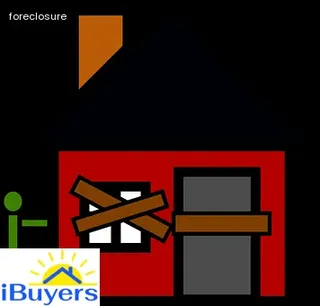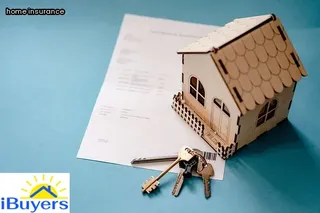Condo Association or Homeowner Association (HOA) Assessments are a regular fee that owners of condominiums and other properties managed by an HOA must pay. These fees help cover common expenses such as landscaping and maintaining common areas, as well as improving the property through projects like adding new amenities or making repairs.
In Michigan, it is important for homeowners to understand their HOA assessments to avoid delinquent dues. By staying up-to-date on assessment costs and understanding how they are used, homeowners can ensure that they remain in good standing with the association and avoid any financial penalties associated with nonpayment of dues.
Additionally, it is important for owners to be aware of state laws regarding HOAs to make sure their rights are protected. Being knowledgeable about condo association or HOA assessments can help Michigan homeowners stay informed and keep their finances on track while living in a managed community.

In Michigan, Homeowner Associations (HOA) and Condominium Owner Associations (COA) are subject to specific regulations and laws that homeowners must be aware of in order to avoid delinquent dues. State legislation requires HOAs and COAs to provide notice of any changes to the HOA’s governing documents to all members, with a copy of those documents available upon request.
HOAs must also maintain records of their financial accounts, including budgets, expenses, and dues payments. The state also provides guidelines for member voting rights, so it is important for homeowners to familiarize themselves with these rules in order to ensure their voices are heard.
Additionally, state law outlines the procedures for collecting unpaid dues from members who have not responded to notices or warnings about their delinquent accounts. Finally, HOAs must comply with laws regarding how they can collect delinquencies such as liens or legal action against members who fail to pay their dues on time.
Following these regulations will help homeowners understand how HOA dues are collected and ensure they can avoid any delinquencies.
Having a homeowner's association or condominium association lien on your property can have serious impacts on your mortgage. In Michigan, delinquent HOA dues not paid within a certain period of time can result in a lien being placed against the property.
Liens are public records and will show up when you try to refinance or sell your home. Liens also accrue interest over time which is added to the amount due and can become very costly.
Lenders will often require liens to be satisfied before they approve mortgages or refinancing, meaning that unpaid dues could prevent you from getting the loan you need. Staying current on HOA dues is essential for avoiding this issue and protecting your financial interests.

Having an understanding of delinquent HOA dues in Michigan is essential for homeowners and condo association members. For those unable to pay their dues, the threat of a lien can arise, which can damage both credit scores and property values.
Therefore, it’s important to take steps to prevent a lien from being placed on your home or condo. To start with, stay informed about your Home Owners’ Association (HOA) or Condo Association’s rules and regulations.
This includes reading all correspondence sent by the association and responding promptly to requests for payment. If you are having difficulty making payments on time, communicate with the association early so that alternate arrangements can be made before any legal action is taken.
Additionally, if you’re behind on payments, make up any missed assessments as soon as possible to avoid further complications. Finally, if you feel you may be liable for penalties due to late payment of dues, speak with an attorney who is knowledgeable about HOA laws in Michigan before proceeding.
Taking proactive steps now can keep a homeowner from facing costly financial repercussions down the road.
One of the most important things for homeowners in Michigan to understand is the importance of staying up-to-date with assessment fees. Delinquent HOA dues can lead to legal action, resulting in fines and other penalties that can be avoided by being aware of due dates and payment methods.
The consequences of not paying homeowner association (HOA) dues on time can be severe, and understanding Michigan’s regulations is essential. Without taking proactive measures, a homeowner could find themselves subject to late fees, interest rates, legal costs and potential loss of property rights.
To ensure the best outcome, it is critical to keep track of all payments and stay informed about any changes or new requirements regarding HOA dues. By understanding the rules associated with assessments and staying current with payment schedules, homeowners in Michigan can avoid costly penalties when it comes to delinquent HOA dues.

In Michigan, homeowners have legal protection from HOAs and COAs when it comes to delinquent dues. Homeowners cannot be denied access to their homes or be forced out of their homes due to nonpayment of fees.
Additionally, HOAs and COAs cannot take possession of a property or place a lien on the property for delinquent dues until after following certain steps outlined in Michigan law. Furthermore, HOAs and COAs must provide adequate notice to homeowners if any action is taken against them for nonpayment of dues.
Homeowners have the right to dispute any charges made against them as well as the right to appeal any decisions made by the HOA/COA regarding delinquent fees. It is also important for homeowners in Michigan to remember that they cannot be charged late fees for payments received within 30 days of their due date and that all fees must be reasonable and not excessive.
Living in a homeowner's association (HOA) community comes with certain financial obligations. Homeowners must pay dues to the HOA in order to maintain the common areas, keep up with necessary maintenance, and fund any special projects or initiatives.
Depending on the size of the community and its needs, these dues can vary significantly from one HOA to another. Understanding how much you owe and when it is due is critical for avoiding delinquency.
As part of this guide, homeowners should be aware of late fees that may be charged if payments are not made on time, as well as any other penalties that may be imposed for non-payment. In addition, it’s important for homeowners to understand what happens when an account is sent to collections and how delinquent accounts can affect their credit score.
Finally, steps should be taken to ensure that dues are paid on time each month in order to avoid any potential issues with the HOA board or collections agency.

For Michigan homeowners at risk of delinquent HOA or COA dues, avoiding foreclosure is a priority. To keep their homes and maintain ownership, property owners must understand the consequences of delinquency and have strategies to stay current.
Working with the association to develop a payment plan can help, but some may need to consider alternative solutions such as refinancing or selling before foreclosure. Additionally, staying informed of changes in state laws regarding HOAs or COAs can help homeowners be proactive with payment plans and prepare for any potential disputes with their associations.
Knowing the terms of any agreements made between the homeowner and their association is important as well, as it provides a clearer picture of how best to avoid delinquency and foreclosure from HOAs or COAs in Michigan.
Failing to pay your Condo or Homeowner’s Association (HOA) assessments in Michigan can have serious consequences. By not paying your dues, you are breaking a legal contract and could be subject to fines, late fees, interest charges, and potential legal action from the HOA or its collection agency.
The exact penalties for delinquent payments vary depending on the rules established by each individual HOA, but generally include suspension of voting rights, suspension of certain privileges such as using the community swimming pool or tennis court, and ultimately a lien against the property owner’s home if all other collection efforts fail. If a lien is imposed on you and remains unpaid after 18 months, it could result in foreclosure proceedings against your property.
It is important to understand that while these penalties may be unpleasant when incurred, they can be avoided altogether by staying current with your assessment fees.

Resolving disputes between homeowners and HOAs/COAs in Michigan can be a complicated process. Understanding the rules and regulations of HOAs/COAs is an important first step toward avoiding delinquent dues.
In many cases, it may be possible to resolve disputes without involving legal action. However, when disagreements escalate, it may become necessary to seek outside assistance.
Homeowners should consider negotiating with their HOA/COA board members or petitioning for a special meeting to discuss their grievances. Additionally, homeowners can contact their local ombudsman for help with navigating the dispute resolution process and advocating for their rights as a homeowner within the community.
It is also important that owners stay abreast of changes in state laws concerning HOAs/COAs as these can have a significant impact on their rights and obligations as a homeowner. Understanding and following all applicable rules and regulations can help avoid unnecessary disputes and costly legal fees down the road.
Late payments to Condo and Homeowner Associations can be a major concern for Michigan homeowners. Understanding the rules and regulations of such associations is key to avoiding delinquency in dues.
It is important to stay informed of any changes in policies, fees, or payment deadlines that may have been enacted by the association. It is also important for homeowners to be aware of the consequences for late payments, which can include fines, interest charges, and legal action.
Working with the association proactively can help to reduce the risk of falling behind on dues. In addition, taking advantage of online or automatic payment options may help ensure timely payments and avoid penalties or late fees associated with missed payments.
Negotiating a payment plan with the association may also help homeowners avoid delinquency in their dues. By familiarizing themselves with their local HOA rules and regulations as well as staying current on dues payments, Michigan homeowners can protect their investments and maintain good standing within their community.

When a homeowner falls behind on their HOA or COA dues in Michigan, the delinquent account can be sent to a debt collector. In order to avoid foreclosure, it is important for homeowners to understand their rights and obligations under Michigan law.
Homeowners should be aware that the debt collector may attempt to collect the full amount of the past due dues plus any associated fees, penalties, interest and costs incurred by the HOA or COA. Debt collectors are also authorized to contact third parties such as family members or employers in an effort to collect payment.
It is important to note that debt collectors may not threaten or harass homeowners in an effort to collect payment and homeowners have the right to dispute any debts that they believe are incorrect. Homeowners should also be aware of their rights when it comes to court proceedings related to delinquent HOA or COA dues.
If a homeowner does not respond within 28 days after being served with notice of foreclosure, then a judgment for foreclosure will enter without a hearing in court. Homeowners can file an answer with the court in order to dispute any claims made against them by the HOA or COA but must do so within 10 days from being served with notice of foreclosure.
Understanding these laws is critical for any homeowner facing foreclosure resulting from delinquent HOA or COA dues in Michigan.
If you live in a homeowners' association in Michigan and fail to pay your HOA dues, there can be serious consequences. Depending on the specific terms of the HOA agreement or bylaws, non-payment of dues can lead to a variety of punitive measures, such as fines, late fees, suspension of privileges or legal action.
In some cases, the delinquent homeowner may be subject to foreclosure proceedings initiated by the HOA. Before this happens however, HOAs typically provide multiple notices and opportunities for the homeowner to make payment arrangements.
It is important for homeowners in Michigan to understand their rights and obligations when it comes to paying HOA dues in order to prevent any financial hardship or potential legal action.

Can an HOA evict a homeowner in Michigan? In Michigan, Homeowners Associations (HOAs) are legally able to evict a homeowner from their property for delinquent dues. The process begins when the HOA notifies the homeowner of their delinquency and gives them an opportunity to settle the debt.
If the homeowner fails to do so, then the HOA may pursue legal action. This could involve either filing a lawsuit or obtaining an eviction order from a court.
It's important for homeowners in Michigan to understand how HOAs handle delinquent payments and take steps to avoid being evicted. Paying dues on time is one way to ensure that you don't face eviction.
Additionally, it's important to be familiar with your state's laws regarding HOAs and foreclosure so that you can protect yourself and your property should your dues become delinquent.
Unfortunately, homeowners in Michigan do not have an easy way to get rid of a Homeowners Association (HOA). HOAs are typically created by the developer or builder of a neighborhood and are usually required by the local municipality.
The rules and regulations set out by the HOA are legally binding, so there is no easy way to remove it without impacting other homeowners in the community. To avoid delinquent HOA dues, homeowners should be aware of their responsibilities as outlined in their HOA contract or deed restrictions.
This includes understanding payments that are due, payment options, and any late fees that may be associated with delinquent payments. Homeowners should also be aware of any notices from their HOA regarding changes to dues or assessments.
By staying informed and up-to-date on all matters related to their HOA fees, Michigan homeowners can ensure they remain compliant with their obligations and avoid delinquent fees.
In Michigan, homeowners associations (HOAs) are voluntary organizations that provide services and amenities to residents. However, when a homeowner fails to pay delinquent dues, the HOA can be dissolved under certain circumstances.
Michigan law states that HOAs must be dissolved if the total amount of unpaid assessments owed by all property owners exceeds 10% of the annual budget or if more than half of the members have not paid their assessments in at least two consecutive years. The dissolution process is complicated and requires a majority vote from members before being filed with the county courthouse.
To avoid having to dissolve an HOA, homeowners should ensure they pay their dues on time and take steps to recover any unpaid dues as soon as possible.